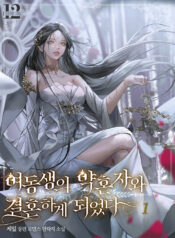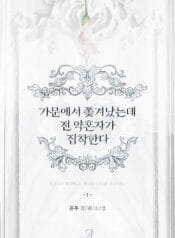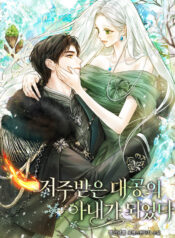The Countess of Cressida gently stroked the Empress’s hair. The Empress lay with her eyes closed, hugging a pillow like a child, feeling comforted by the countess’s touch. Looking down at her, the Countess softly asked,
“Is it what the Emperor said that’s troubling you?”
“I know the Emperor doesn’t care for me. I have Frederick, and you, the Cressida, standing behind me, so it doesn’t matter. But lately, the way he keeps Robert close… Should we take action?”
The Countess continued her gentle stroking as she replied,
“Not yet. The Emperor is watching us. If we act now, it will only give him grounds to strike. The reason he provoked you was likely to bait you into doing something foolish. Why else would he suddenly say something out of the blue? He’s trying to make you uneasy.”
Opening her eyes with frustration, the Empress replied,
“Well, he’s succeeded. Frederick has refused to see me, claiming he’s busy with his studies. It’s fortunate he’s avoiding Isabelle too, but what if he keeps turning away from us? What if he stops listening to us?”
“Calm down. We’ve raised Frederick for over twenty years. He’s not going to abandon us after only three or four months apart. He’s simply protesting a bit because of Isabelle. Let him be. It would be better to tame Wiscombe instead.”
“Why Wiscombe?”
The Countess of Cressida gave her a reproachful look, and the Empress bit her lip. The Countess gently prevented her from biting further and said,
“Frederick won’t give up on Isabelle, so he must marry Wiscombe. We should dampen his spirits first. By now, gossiping about Isabelle or praising her likely has no effect on Frederick. Isn’t that so?”
The Empress replied reluctantly,
“We still have time. Duke Gareth hasn’t completely given up either. If he sees how Frederick has changed…”
“You know what the Duke of Gareth is like. Forget about him. Wiscombe is our only option now. If we try to separate him from Isabelle any further, Frederick might actually break away from us. Besides, there’s already been discord between Wiscombe and Prince Robert. If that escalates on its own, wouldn’t it be perfect for us to sit back and watch Robert and Ariel clash with Wiscombe?”
The Empress’s face brightened with realization,
“You’re right. I’d be thrilled to see that arrogant girl, Robert, and Wiscombe all rattled at once. Mother, I don’t know why these bothersome people don’t just disappear.”
The Countess replied,
“Get some rest, dear. You’re the Empress. When Frederick becomes Emperor, you’ll have more responsibilities than you can imagine. You’ll need your strength, my child.”
At her whispered words, the Empress’s eyelids grew heavy. Once she had drifted to sleep, the Countess turned off the light and quietly left the room.
—
The Countess returned to the Cressida estate as dawn began to break. The young Lord Cressida greeted her with a touch of reproach.
“How old will the Empress have to be before she grows up? It’s not right that you still have to rush back and forth, sleepless, every night.”
The Countess replied wearily,
“We’ve come this far because, at least, she listens to me. I’m fine. Tomorrow, we start dealing with Wiscombe. Ha! Finally, we’ll get to show Wiscombe what we’re made of after she’s treated us like mere provincials.”
“Don’t worry, Mother. The article about Robert and Wiscombe’s rift is ready. Everyone will think it’s Prince Robert’s doing.”
“That old fool Wiscombe will be beside herself,” the Countess said with a smirk, her face showing satisfaction even amidst her fatigue.
Lord Cressida helped her to her bedroom, and after settling her, he headed not back upstairs but down to the basement.
—
In the dim light of the basement, Lord Cressida looked down at a young maid and asked,
“So, how is Frederick?”
The young maid, one of Frederick’s attendants, kept her eyes lowered as she answered timidly, her hands clasped together.
“He hasn’t left his room all day. He said he didn’t want to hear the noise from the ball.”
“Poor boy. If he hadn’t broken his engagement, he’d have enjoyed himself the most tonight. With Robert engaged to a lowly family, it wouldn’t hurt to let him have some fun. Well done, you may go.”
At Lord Cressida’s signal, an attendant pressed a silver coin into the maid’s hand. She gave a slight bow and exited through a small door in the basement.
Once she’d left, Lord Cressida murmured to himself,
“So far, so good. When the Wiscombe matter erupts, I wonder if that fool Frederick will come running back to us.”
—
The maid exited the Cressida estate and returned to the palace. She knocked on the door to Frederick’s room and opened it quietly before kneeling beside his bed.
“Lord Cressida specifically inquired about what His Highness did during the ball. I think that’s why I was summoned so suddenly at dawn. I told him His Highness stayed in his room all day.”
Frederick, in his robe, replied kindly,
“Really? Do you think he believed it?”
“I reported exactly as you said—that you didn’t want to go out because of the noise from the ball.”
Frederick raised an eyebrow and replied,
“Well done.”
With a dismissive wave, Frederick signaled the maid to leave, and she quietly exited his room. Exhausted, she returned to her own quarters.
Being summoned at dawn and sneaking in and out undetected was both tiring and stressful, but the extra income—ten times her usual weekly pay—made it worth the trouble.
As she lay down, hoping for some sleep, someone entered her room without a sound. The intruder pressed a pillow against her face.
The maid struggled, thrashing her arms and legs, but the pillow muffled her screams. She flailed desperately for a time, but eventually her movements stopped. Only after the person left the pillow over her face and hurried out did she open her eyes, trembling too hard to sit up. But she had to escape if she wanted to survive.
In the morning, the maid, barely dressed, slipped out of the palace and headed directly to the Cressida estate. The gatekeeper, recognizing her, allowed her in. One of Lord Cressida’s attendants spotted her and asked,
“Why did you come back so suddenly? Did something happen at the palace?”
The maid, sobbing, replied,
“Prince Frederick tried to kill me. He knows I’ve been passing information to the Cressida estate.”
“What?”
“Prince Frederick found out I was reporting on him to Lord Cressida and had been reviewing my reports. But something must have displeased him today, and he tried to kill me… Please, save me! Lord Cressida is the only one who can protect me. I’ll do anything he asks.”
The attendant assured her and took her inside, knowing he would need to inform his master and get his approval on how to handle her.
Although reluctant to wake Lord Cressida, who had only just fallen asleep, the attendant knocked on his bedroom door with the urgent news. After repeated knocks, he heard the irritated shuffle of slippers and curses approaching from inside.
Lord Cressida opened the door, glaring at his attendant, still half-asleep.
“What is it?”
“Prince Frederick has discovered the maid we recruited, and he has apparently been checking her reports. This morning, he attempted to kill her.”
“What?”
“The maid has just fled here.”
“Since when? Since when has he known? Was he reading the reports, all while hiding his reaction? That damn maid?”
“I told her to stay put and informed her that only you could protect her. She believes it.”
“Protection? After deceiving us all this time, now she wants protection? Interrogate her, and if there’s more to her story, report back.”
“Yes, my lord.”
As the attendant left, Lord Cressida leaned against the door and muttered,
“That damn Frederick. So he’s been scheming. Does he think he’s all grown up now? And how do I explain this to Father?”
—
Later that morning, the Duke of Wiscombe received an update.
“The ‘sparrow’ has returned to Cressida.”
Philip sounded impressed as he remarked,
“She found her way there? Even though it was my plan, I’m amazed it worked as expected. After nearly dying following her report to Frederick, she surely believes he tried to kill her. So she went straight to Cressida.”
The duke nodded, signaling for more details. The attendant continued his report,
“The Countess visited the Empress’s chambers again last night.”
The Duke of Wiscombe’s face lit with satisfaction.
“The Empress is easy to read. Looks like she was too upset to sleep. Good work. You’ve had a rough morning. Go and rest.”
“Yes, Your Grace.”
Stretching, Philip chimed in,
“This should drive a bit of a wedge between Frederick and Cressida, but nothing decisive yet.”
The duke stood and said,
“Their break will come once Frederick ascends the throne. Well done with this task. You, too, should rest.”
Philip saw the duke off before making his way to his own quarters.
“Frederick, you clever fool. I see now why the Cressida’s so taken with you—you’re as predictable as they come.”
***
After the ball, the Emperor began to arrange frequent informal meetings with the scholars and businessmen he’d met during the event.
It was a light-hearted meeting, either to drink tea or share a meal, but it could hardly be called casual when the other party was the Emperor.
As the bourgeois began frequenting the royal court, with some even becoming regular visitors of the Emperor, the senior royal advisors and orthodox nobles felt a growing sense of unease.
Although the Empress had a hand in influencing them, their intention was to demonstrate their power and influence to the Emperor by boycotting the court balls.
Contrary to their calculations, however, their influence was actually waning. The spaces they vacated were eagerly filled by others, and the Emperor’s welcome towards these new faces was evident.
The elderly, gray-haired Marquis Melin, spoke discontentedly to Count Lacer, who was young enough to be his son.
“The bourgeoisie are not like us. They’ll dive in headfirst if there’s any gain, no matter the risk. We’ve made a mistake here.”
Count Lacer nodded in agreement, saying, “Indeed. We can’t just stand by like this.”
Marquis Melin and Count Lacer, members of the royal family, chose to approach Prince Robert to demand an explanation rather than directly voice their dissatisfaction to the Emperor.
They feared that directly provoking the Emperor might only expedite their own marginalization. Uranos was changing, and merely pressuring the Emperor wouldn’t resolve anything.
If they allowed these meetings between the Emperor and the bourgeoisie to continue unchecked, even politics—traditionally a noble domain—might be overrun by the bourgeoisie.
Prince Robert listened attentively to their complaints, compiled their grievances into recommendations and suggestions for the Emperor, and discussed them again with the nobles.
Seeing the orthodox nobles acting so haughtily before Prince Robert, Vian shook his head.
‘They’re here because they’re desperate, yet why are they holding their heads so stiffly… Do they act like this with Prince Frederick, too?’
Prince Robert not only met the senior advisors in his own office but also began visiting their residences, hearing them out and accepting their invitations.
Despite all this, Prince Robert never once asked Marquis Melin or Count Lacer to support him as the crown prince. He focused solely on listening to their views and conveying them to the Emperor without misinterpretation.
Radicals close to the Empress had previously refused to engage with Prince Robert, rejecting meetings with him outright. However, upon hearing rumors that the Emperor planned to make these once informal gatherings with the bourgeoisie an official affair, they promptly sought him out.
Prince Frederick and the Empress, even amid these developments, offered no countermeasures and evaded meetings by making excuses.






